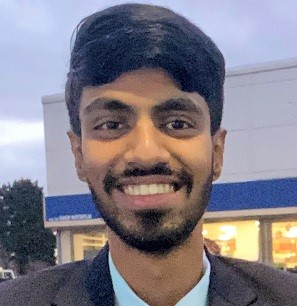
Ajay Konuri
‘Using neuroimaging to identify biomarkers of progression to dementia and novel therapeutic mechanisms in patients with prodromal Lewy body disease.’
University of Sydney, NSW
Awarded 2024
Co-funded by the Rotary Club of Belconnen 50th Anniversary Funding Partner PhD
“The core of my decision to engage in research within this specific domain stems from my aspiration to untangle the intricate complexities of brain health through an integrated approach.”
Researcher Profile
I was interested in Medicine from a very young age as I was exposed to the field quite early in my life. As I grew up, my fascination with neurodegenerative disorders and brain functioning only increased. I attended a Nobel laureate’s lecture during my secondary school that ignited my curiosity into research. Eventually, I chose a career in medical imaging, where I noticed a need for more advanced techniques in neurological diagnostics, especially for children and elderly patients. To address this gap, I pursued a Master of Research at Nottingham Trent University and Sir Peter Mansfield Imaging Centre in the United Kingdom.
During this transformative experience, I gained expertise in cutting-edge neuroimaging techniques. This solidified my passion for research, along with the excitement of discovering something new daily. However, despite my newfound skills, I felt a desire for a deeper understanding of the medical aspects. This led me to the University of Sydney, where I now use novel magnetic resonance techniques and advanced computational tools to uncover early markers of Lewy body diseases.
Project Summary
Dementia is one of the leading causes of death and disability in Australia, costing $14 billion annually, with projected tripled case numbers by 2050. Lewy body diseases (LBDs) are a spectrum of neurodegenerative diseases categorised into dementia with Lewy bodies (DLB), Parkinson’s disease (PD), and Parkinson’s disease dementia (PDD). Whilst currently underdiagnosed in clinical practice, DLB accounts for 20% of all proven cases of dementia. PD affects over 120,000 Australians, with up to 80% of PD patients developing dementia, known as PDD. Despite their socio-economic impact, LBDs are often misdiagnosed. Currently lacking precise diagnostic tests and targeted treatments, early detection of LBDs is critical for effective interventions.
My PhD project aims to address this gap by leveraging unique prodromal populations with an elevated risk of LBDs:
- Individuals with a higher genetic predisposition to LBD.
- Patients presenting with isolated Rapid Eye Movement sleep behaviour disorder (iRBD), a sleep disorder and a well-recognised prodromal manifestation of LBD.
- A novel cohort of individuals experiencing recurrent delirium, which was recently defined as another prodromal symptom of LBD.
The overarching goal is to identify new structural imaging biomarkers, unveil mechanisms of disease progression, and comprehend symptomatology related to sleep-wake circuitry involvement. By exploring these unique cohorts, this research seeks to contribute vital insights for early detection and intervention strategies, offering hope for improved outcomes in the face of the rising societal burden posed by LBDs.